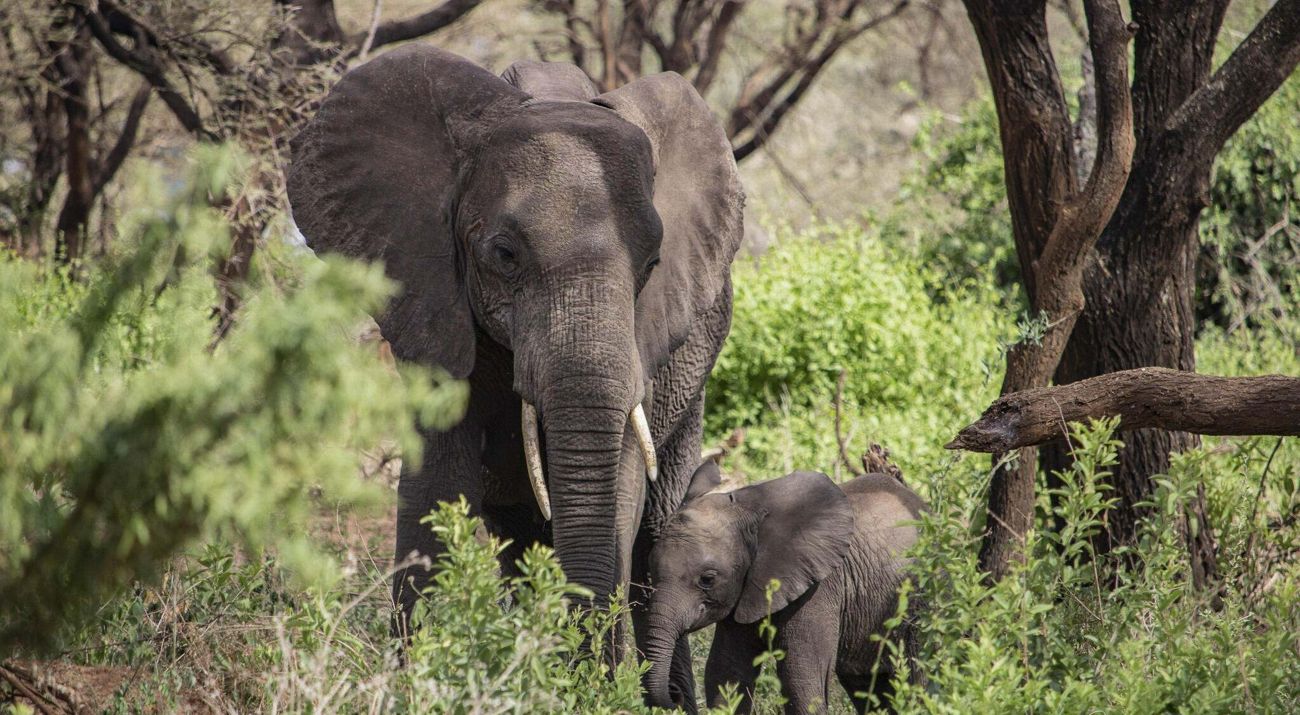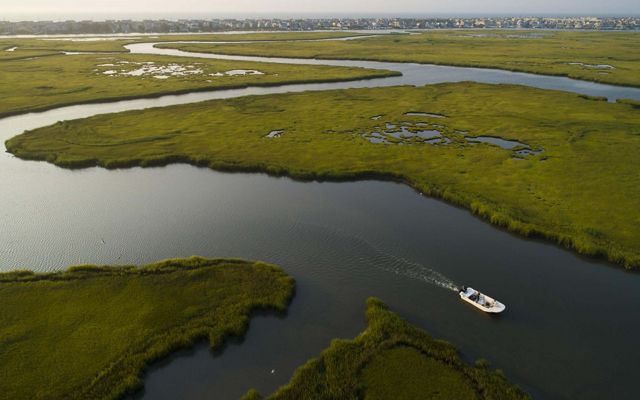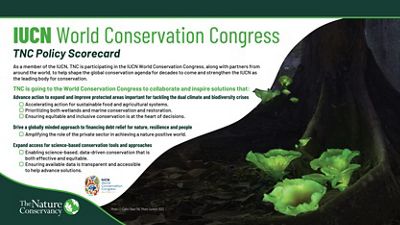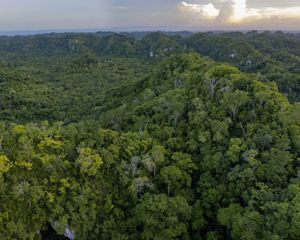Charting a Nature-Positive Future at the World Conservation Congress

From October 9-15, 2025, conservation leaders from across the globe will gather in Abu Dhabi, United Arab Emirates for the IUCN World Conservation Congress (WCC)—the world’s largest and most inclusive environmental decision-making forum. Held every four years, the Congress brings together governments, civil society, Indigenous Peoples’ organizations, businesses, and academia to address the planet’s most urgent environmental and development challenges.
The urgency is clear: scientists estimate that we are losing species at a rate 1,000 times higher than the natural rate. Globally, only 18% of the land identified as critical for biodiversity and ecosystem services is currently protected.
And yet, nature underpins all that we need for safe, healthy, vibrant communities. Over half of global GDP—approximately $58 trillion annually—is supported by biodiversity. But we continue to face the biodiversity finance gap of $700 billion per year. Closing this gap is essential to halting nature loss and achieving the goals of the Global Biodiversity Framework.
WCC is widely regarded as a highly influential global forum for accelerating global conservation priorities. Since 1948, nearly 1,500 resolutions have been adopted, influencing treaties like CITES, Ramsar, and the Convention on Biological Diversity (CBD).




TNC at the IUCN World Conservation Congress
As a member of IUCN, TNC will join global partners to help shape the conservation agenda for the years ahead by advancing science-based, community-driven, and financially innovative solutions that protect nature and support people.
TNC will be focused on three key priorities at WCC:
-
From regenerative agriculture to coral reef insurance, TNC is scaling nature-based solutions that protect biodiversity and build climate resilience. These approaches are foundational to climate adaptation and mitigation—and directly contribute to the Global Biodiversity Framework’s 30x30 goal: protecting 30% of the planet’s lands, freshwater, and oceans by 2030.
TNC is helping lead this global commitment by catalyzing durable protections through science, policy, and proven financial models. Our goal is to conserve 650 million hectares of healthy land, 1 million kilometers of rivers, 30 million hectares of lakes and wetlands, and 4 billion hectares of ocean by 2030. WCC is a critical milestone on this journey—an opportunity to align global ambition, accelerate action, and ensure conservation is inclusive, representative, and effectively managed.
-
With biodiversity loss now recognized as a systemic financial risk, the Congress offers a platform to push for stronger integration of nature into global financial systems. TNC’s Nature Bonds and NatureVest initiatives are unlocking billions in conservation finance and demonstrating how nature-positive investments can deliver real returns for people and the planet.
-
Recent research shows that conserving just 44–49% of global land area could maintain 90% of nature’s contributions to people while protecting biodiversity for 27,000 species. But more than a third of these areas are at risk from development pressures, underscoring the need for integrated planning.
Tools like Marxan and the Resilient Lands Mapping Tool are helping governments and communities make smarter, data-driven decisions. These tools are vital for achieving the global 30x30 target and ensuring that climate and biodiversity goals are grounded in science.

IUCN World Conservation Congress TNC Policy Scorecard As a member of the IUCN, TNC is participating in the IUCN World Conservation Congress, along with partners from around the world, to help shape the global conservation agenda for decades to come and strengthen the IUCN as the leading body for conservation. TNC is going to the World Conservation Congress to collaborate and inspire solutions that: advance action to expand and improve protected areas important for tackling the dual climate and biodiversity crises; drive a globally minded approach to financing debt relief for nature, resilience and people; and expand access for science-based conservation tools and approaches.
Influencing Global Environmental Action
With over 1,400 members from more than 170 countries, the IUCN Assembly at WCC will vote on more than 120 motions addressing urgent conservation challenges—from freshwater protection to sustainable food systems and biodiversity finance. These motions, once adopted, become formal IUCN resolutions and recommendations that often influence international treaties and conventions—including those negotiated at UN COPs (Conferences of Parties), such as UNFCCC COP30 in the Amazon and UNCBD COP17 in 2026.
By emphasizing science-based targets, accountability mechanisms, and inclusive approaches that integrate biodiversity and equity, WCC can help strengthen countries’ climate commitments and build momentum for biodiversity action. Its outcomes—ranging from increased visibility and funding to cross-sectoral collaboration—will reinforce the urgency of protecting vital ecosystems and empower the communities who steward them.
Sign up for TNC’s Global Insights newsletter
Get our latest research and insights about climate & biodiversity challenges, every month.
Sign Up

